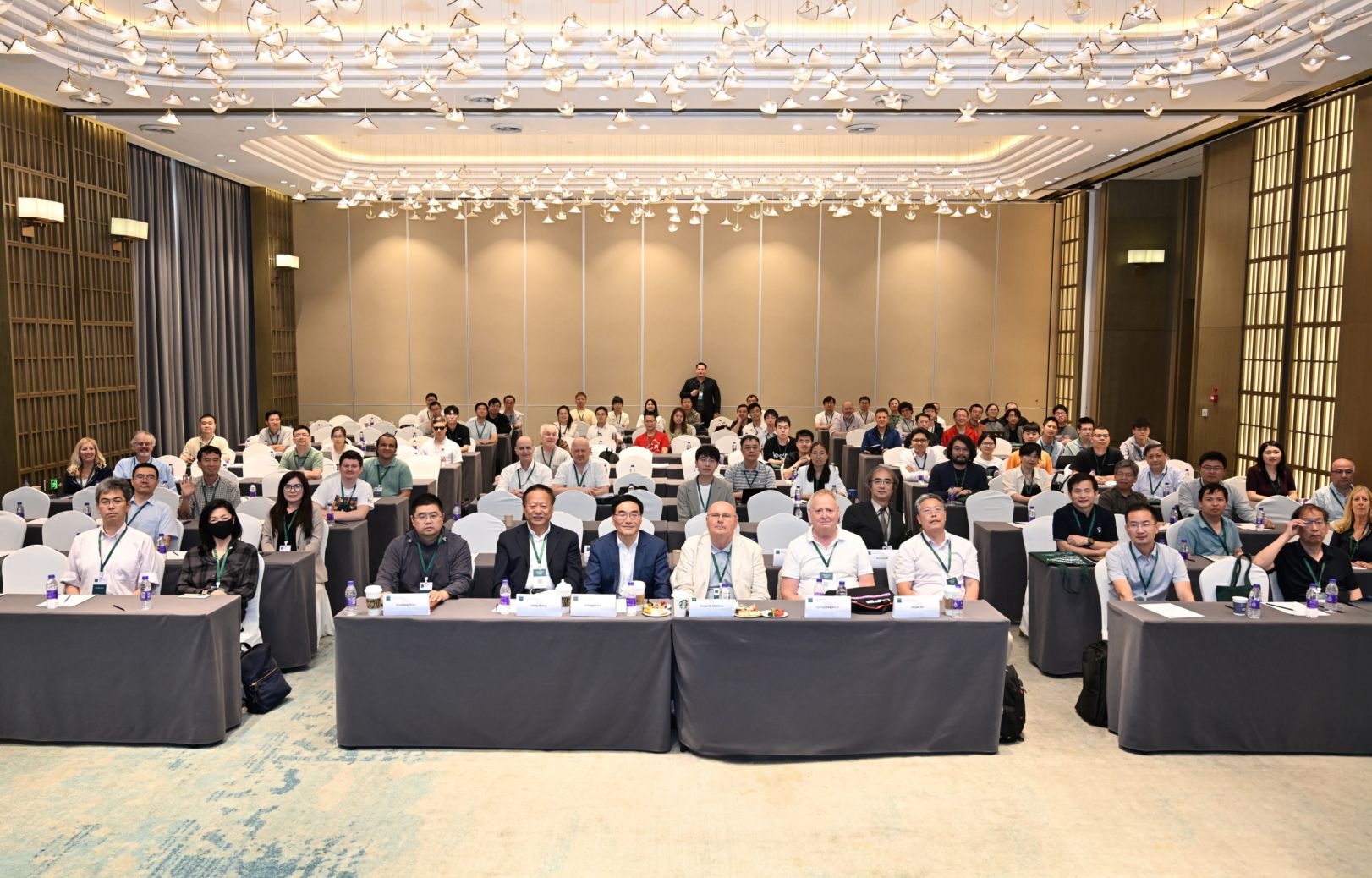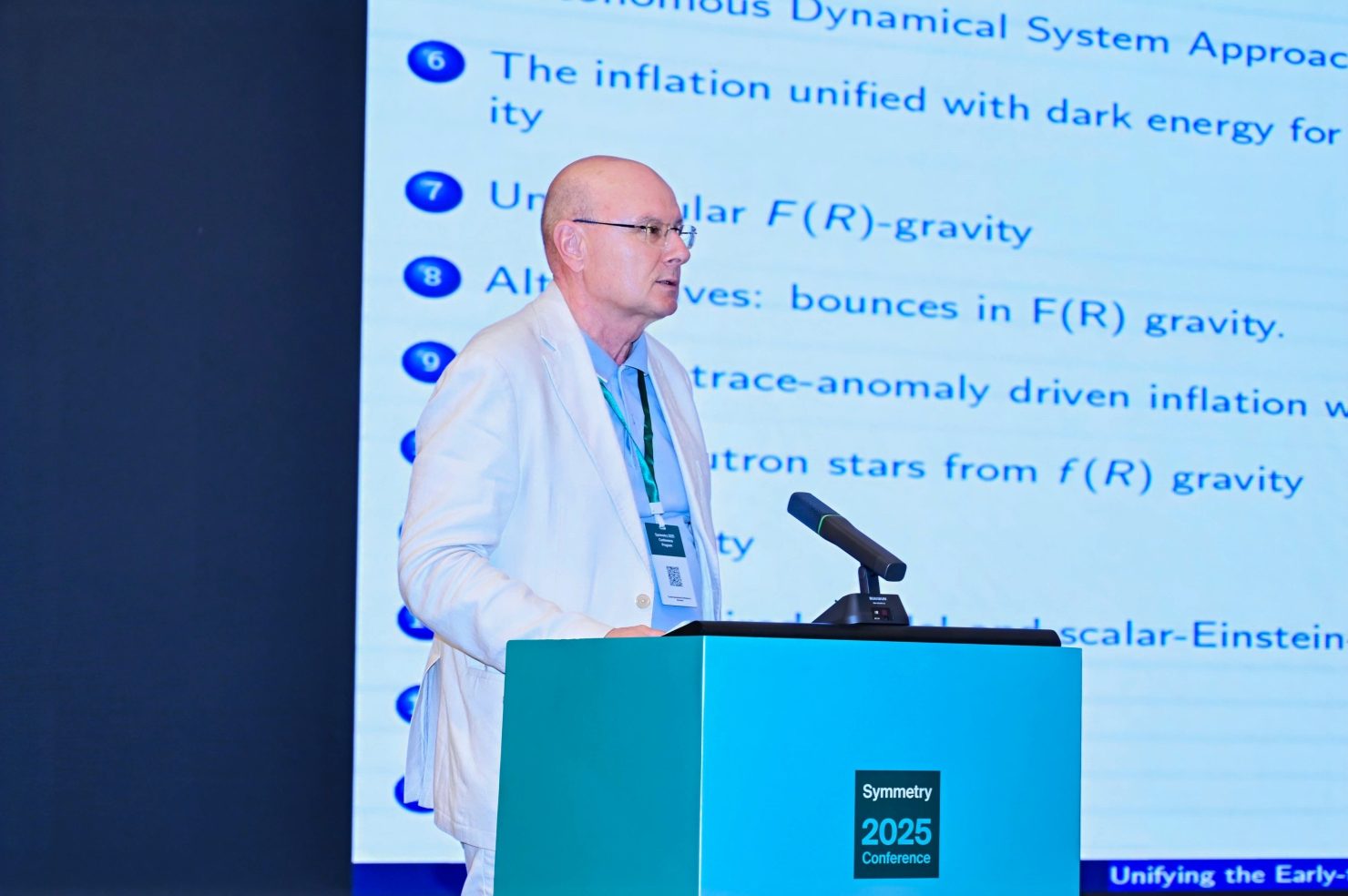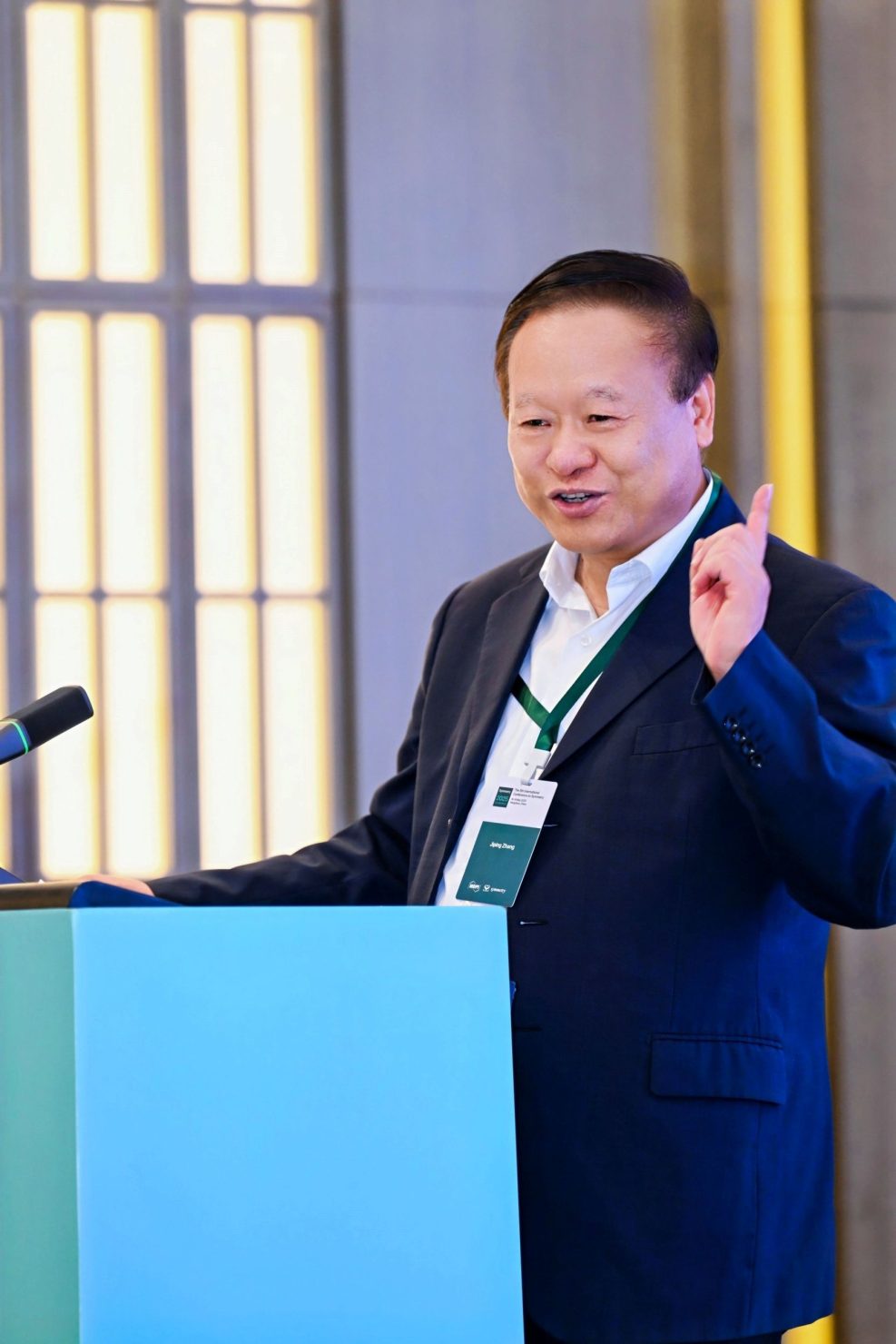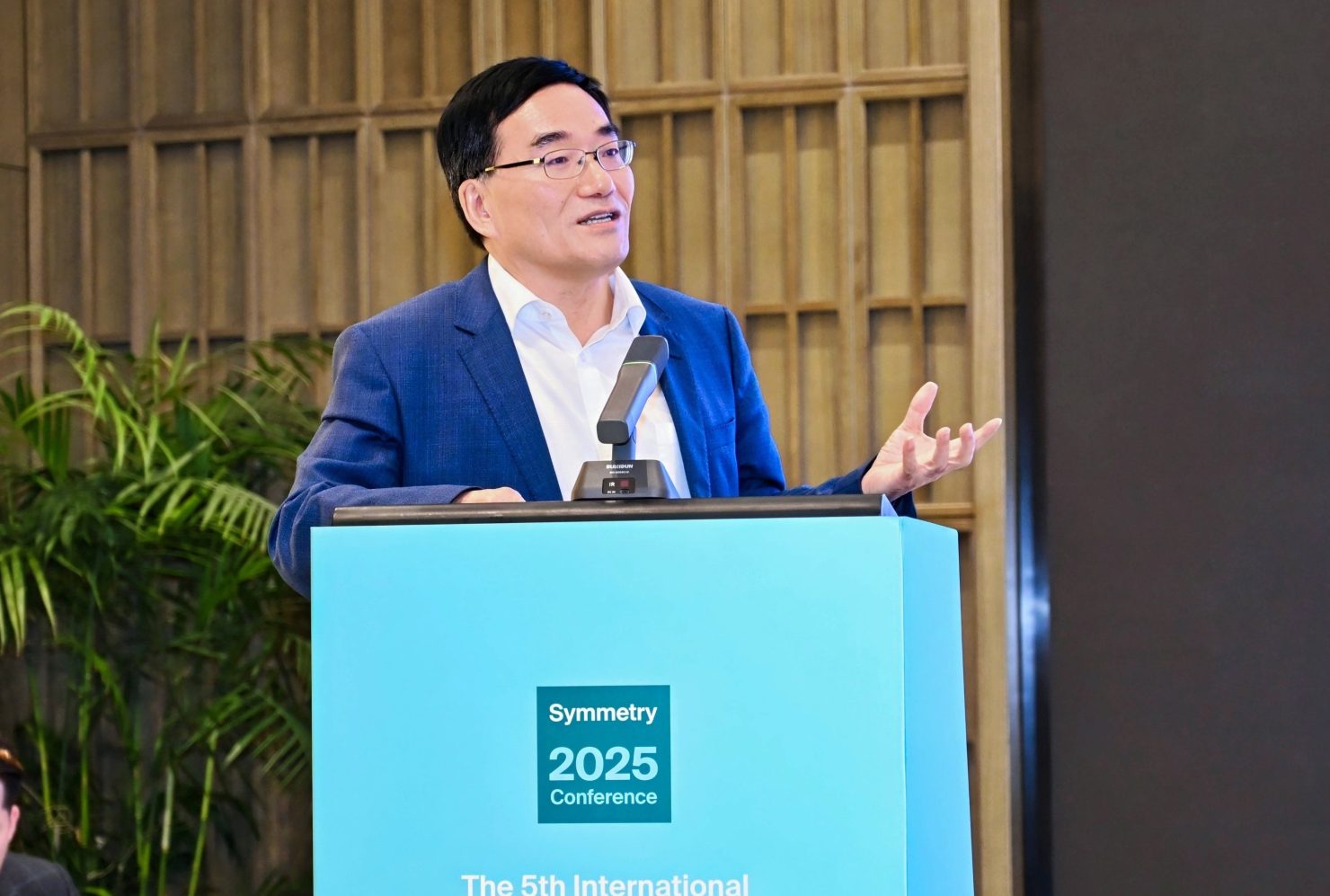
Using Symmetry to Find Modern Solutions to Age Old Issues.
MDPI recently hosted Symmetery 2025: 5th International Conference on Symmetry. The conference fostered interdisciplinary dialogue and collaboration among scholars, engineers, students, and professionals working in symmetry-related fields. It was organised by MDPI and its Open Access journal Symmetry. Additionally, the conference was sponsored by a range of our Open Access journals and partners; see the full list here.
The conference took place in the historic setting of Hangzhou, China, over 3 days. The participants were welcomed by leading researchers interested in symmetry and its applications, and the sessions were supported by a mix of early-career researchers and experts from various fields. The event was extremely well received and a colossal success, with 150 attendees and 183 abstract submissions related to the topics of the event.
A wide range of people played crucial roles in making this conference successful. This includes the three chairs of the event: Professor Sergei D. Odintsov, Professor Changzheng Qu and Professor Jihuan He. The chairs worked closely with the advisory committee members to recruit world-class speakers and scientists who put together inspiring sessions for the conference.
The success of the conference is credited to the captivating presentations given by all our speakers. The event was supported by sessions from distinguished plenary and keynote speakers who presented their groundbreaking research advancing their respective fields and symmetry applications.
Here, we look at some of the important research from one of the chairs of the event, Professor Sergei D. Odintsov, and 2 plenary speakers, Professor Dr Jiping Zhang and Professor Dr Ronggen Cai.
Professor Sergei D. Odintsov

Professor Dr Sergei Odintsov is an ICREA research professor at the Institute of Space Sciences (IEEC-CSIC). He has authored approximately 730 articles that have been cited over 65,000 times. His research specialises in cosmology, astrophysics and gravity.
Professor Dr Sergei Odintsov describes his research and purpose to “develop the theory which should describe our universe’s evolution as a whole. My main purpose is to resolve the fundamental puzzle of modern cosmology: why and how the universe accelerates. What are dark energy and inflation? In fact, I proposed the first modified gravity, which may describe the consistent universe history.”
The history of the universe and symmetrys role in modified gravity
Professor Dr Sergei Odintsov has an extensive portfolio of research in furthering our understanding of the cosmos and the history of the universe. He uses symmetry as a universal approach to explain the fundamental laws of the universe. Moreover, his research focuses on a range of modified gravity. Modified gravity theories are additions or adjustments to Einstein’s theory of general relativity. These theories have emerged as technology and our capabilities to explore the cosmos in greater detail have grown, revealing limitations in the original general relativity (GR) theory.
Professor Dr Sergei explains, “In relation to modified gravity, we proposed a new, very general and non-singular entropy which generalises known earlier variants. The alternative gravity which we develop should describe the whole sequence of the universe eras: inflation, radiation-matter dominance and dark energy era in a unified way. We also continue the search for exotic intermediate eras like the pre-inflationary or exotic reheating era and the related gravitational waves.
Our study of the current universe will clarify its future: if it will expand eternally or if its evolution will be finished in the future singularity”.
Professor Dr Jiping Zhang

Professor Dr Jiping Zhang is currently the dean of the School of Mathematics at Peking University, as well as being the deputy director of the Beijing International Centre for Mathematical Research. He is a world-renowned mathematician who has made outstanding contributions in algebra, particularly in representation theory and group theory.
Symmetry and group action
Finite group theory is a branch of algebra which is used to examine the structure of groups. In particular, it’s used to study groups with a finite number of elements. Modular representation theory is a specialised area within infinite group theory. It explores how these groups can be represented by linear transformations on vector spaces over a field of prime characteristic.
Group theory has a wide variety of uses in many fields, including physics, more specifically particle physics and quantum mechanics. It’s also commonly used in chemistry to classify molecular orbitals, essential for understanding chemical bonding and reactivity. In addition, it is also used in computer science, especially in cryptography, coding theory and the study of algorithms.
Professor Dr Jiping Zhang explains, “Mathematics is unified, and math is the world. Modern mathematics is becoming more and more integrated and unified. The solution of any important mathematical problem will not be limited to one field. It requires joint efforts and cooperation. Chinese students and young mathematicians should pay more attention to this.”
Professor Dr Ronggen Cai

Professor Dr Ronggen Cai serves as the president of Ningbo University. He is an esteemed Chinese physicist specialising in gravitational theory and cosmology. He has made important contributions to the field and is recognised for his expertise. Moreover, he’s published more than 310 papers. His current research focuses on the holographic property of gravity, black hole physics, early universe physics, dark energy and gravitational wave physics.
Holographic property of gravity
The holographic principle is a concept in physics which suggests that the information contained in a region of spacetime is encoded on its surface, similar to a holograph. It’s a theory that has revolutionised our understanding of the universe, suggesting that the universe is actually 2-dimensional instead of 3-dimensional. Black holes have played a huge role in this discovery, as the study of black holes has allowd us to gain a deeper understanding of the links between spacetime, gravity and information
As technology and knowledge have grown around the cosmos, and space inconsistencies and contradictions have been identified in some of our existing theories. The holographic principle explains inconsistencies such as the information paradox, also known as the black hole information problem. This is that information inside a black hole is lost forever once it evaporates. This contradicts the principles of quantum theory and the suggestion that physical information cannot be destroyed.
The holographic principle suggests that this information is not lost but encoded and preserved on the surface of the black hole and released back into the environment as it evaporates. This research is crucial for forwarding and expanding our knowledge of the universe.
Future symmetry conferences
The 5th International Conference on Symmetry – Symmetry 2025 – brought together experts and new researchers from all areas of symmetry, forging links and new opportunities for collaboration. The conference inspired new conversations and relationships, using symmetry to unite all fields. If you would like to find out more about attending or participating in future Symmetry conferences or events for 2025, please see here.
Or if you would like to read more about the research presented at the conference, please see the Special Issue here.










